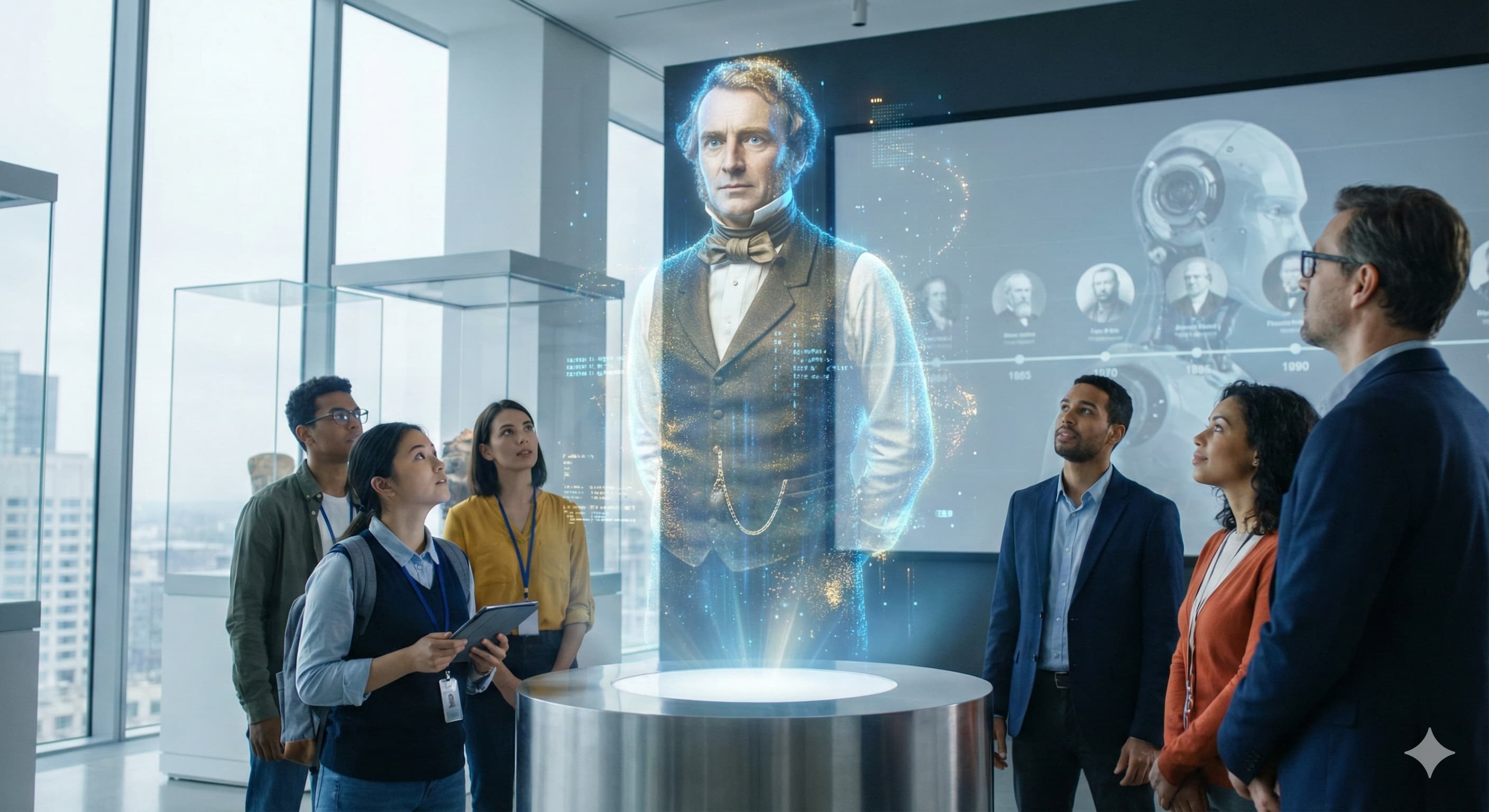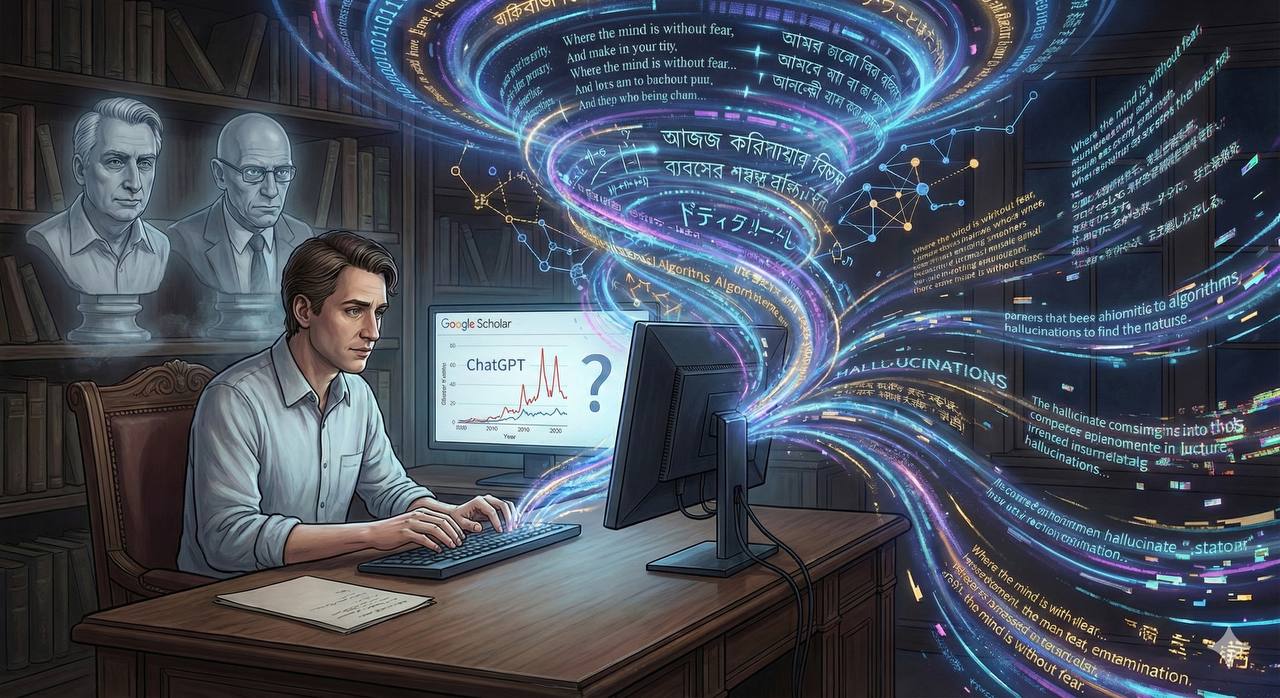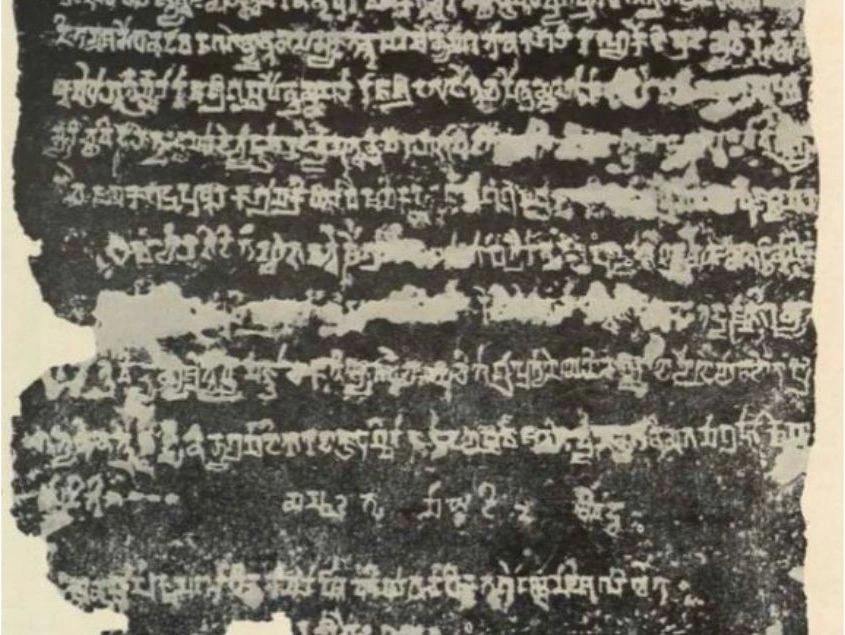AI Innovations in History Teaching and Mapping
Exploring History with AI. How AI Projects Can Enhance Historical Teaching
In the digital age, artificial intelligence is becoming a powerful historical tool for understanding the past. Integrating AI into historical research and mapping presents a transformative opportunity to deepen our understanding of history.
Some AI-powered projects are revolutionizing historical learning and have the potential to reshape historical understanding significantly.
Using artificial intelligence algorithms, historians can discover new ideas, discern patterns, and make connections previously unavailable.
For example, natural language processing is currently making it possible to decipher ancient texts and translate historical documents into modern languages, making them more accessible to scholars and the public.
From now on, we can analyze data to discover new aspects of history. This helps us understand past events and how society works in more detail.
Projects like Google's Cultural Institute and the British Library's Endangered Archives Programme have utilized AI to preserve and make accessible historical documents and artifacts.
AI Projects in History and Cartography
Inquistory
Inquistory is an AI tool for K-12 students to learn history interactively. Students can interact with historical figures to deepen their knowledge of the exact topic. It presents more than 20,000 figures, eliminates off-topic questions, and focuses on the economic and social changes in America brought about by the Industrial Revolution.
Inquistory strives to inspire curiosity through inquiry-based learning and serves as a unique AI-textbook. Its user-friendly interface and wide selection of historical figures provide students with an engaging resource for learning history.
Students may analyze the transformation of the American economy and changing social and political conditions in the United States in response to the Industrial Revolution or identify the reasons for the development of federal Indian policies and the American Indian Wars and their relationship to agricultural developments and industrialization.

Machines Reading Maps
Maps have unique record of information that is rare and does not exist anymore, yet they can provide us with plentiful knowledge about historical geography.
The Alan Turing Institute's 'Machines Reading Maps' project uses artificial intelligence to extract textual information from maps, especially historical maps.
Employing machine learning techniques, it extracts and enhances text from digitized maps, addressing text detection and interpretation challenges. The project aims to improve a robust tool, Strabo, to extract text from maps.
The Machines Reading Maps project combines the mapKurator system for automated extraction and linking and the Recogito tool for manual annotation. Together, they facilitate the large-scale interpretation of historical maps.
The project partners with the David Rumsey Map Collection to enable text-based searching of map libraries, refining data, and enhancing methods with 60,000 maps.
Through this groundbreaking initiative, researchers at the Alan Turing Institute are harnessing the power of machine learning to unlock the secrets hidden in these often overlooked maps.
.jpg)
Pam Pam
AI can play different roles: be the central technology of the project or, on the contrary, become a source of additional value for users.
For instance, the startup PamPam uses ChatGPT as an assistant to suggest activities and attractions. Synced with Google Maps, it offers a map of the desired location, suggestions for activities, and a chat window for inquiries.
The company aims to work with cities and organizations, such as tourism organizations or historical societies, to create maps and guides.
Working with these organizations, PamPam will develop a subscription-based model for creating maps and an AI assistant offering additional information.
“We definitely believe that humans have unique knowledge that AI does not have,” said Helena Jaramillo, co-founder of Pam Pam.
Recently, Erik Hoel, a neurobiologist, argued in his latest article published in the New York Times that the widespread use of content created by artificial intelligence threatens culture, cognition, and the perception of reality. He implies that this trend, driven by cost-effective content creation, parallels environmental pollution and requires regulatory action to protect the integrity of human culture.

MyLens.AI
MyLens.AI is another free tool that uses artificial intelligence to easily create engaging timelines showcasing key events on any topic you choose.
It brings together a variety of themes, offering a single chronology that reveals their interconnected events.
At its core, MyLens.AI strives to overcome the traditional limitations of static time frames by dynamically combining interconnected events, providing users with a complete understanding of their chosen topic.
With an intuitive interface, users can easily navigate through various topics, diving into topics ranging from historical eras to scientific advances with unprecedented ease. The latest addition to MyLens.AI is the Quadrant feature. Look at the example below.

HelloHistory.ai by Humy
Hello History is an AI-powered chatbot app that allows users to have conversations with some of the historical figures of all time.
Using ChatGpt, each conversation is unique and tailored to the user's interests, providing an immersive experience.
You can ask questions, discuss topics, or even debate with historical figures, gaining new historical insights. They have an extensive list of over 400 historical figures and continually include new collections tailored to scientific programs.
Their AI technology ensures that every conversation is tailored to the user's interests, making it exciting and educational.
The application also expands users' knowledge in the fields of art, music, justice, literature, philosophy, science, technology, and more.
.png)
Conclusion
AI-based projects in history and maps are important for unlocking the full potential of technology in advancing historical scholarship, preserving cultural heritage, enhancing education, and promoting ethical practices in historical research and interpretation.









